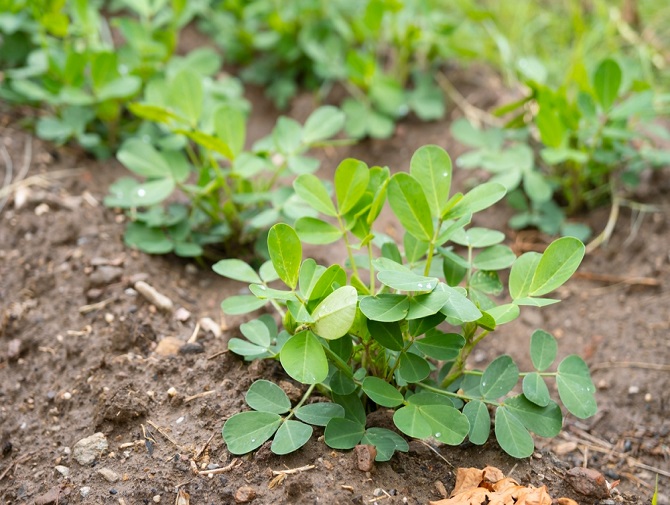

An ounce of information

Article by Pnut King
Published on 09/25/2023 in Peanut News
Our world is getting warmer, and peanut farming is growing larger.
We've witnessed this change in weather patterns, melting glaciers, and rising sea levels. In fact, major farming countries such as America, Argentina, China, and India have seen rising temperatures affect their crops. In fact, in China, the temperature has increased by about 1.7°C in the last 38 years.
But hey, 1.7°C doesn’t sound like a lot – right?
The answer is that it’s actually more than you’d think.
That extra heat really adds up – driving regional and seasonal temperature extremes, reducing snow cover and sea ice, and intensifying heavy rainfall.
But have you ever thought about how this changing climate could affect the food on our plates? Specifically, how it will affect the humble peanut plant – a crucial crop loved not just for its taste but also for its economic value?
And even though a sown peanut needs around 30-34°C to germinate, is sustained atmospheric heat good for peanut growth?
Studies have shown that climate change is having a significant impact on the cultivation of groundnuts. Increasing carbon dioxide levels and a warmer climate are creating a more challenging environment for our favourite crop. This sustained heat affects the groundnut's physiology and reduces its yield – even with adequate rainfall.
But it's not just about warmer days; it's about warmer nights too.
With warmer temperatures at night, soil temperatures are elevated – which has a huge impact on the growth and productivity of peanut plants. And milder winter night temperatures mean fewer freezing days, giving pests and diseases a much better chance of survival.
Just another hurdle to add to the growing list for peanut farmers.
Rainfall has also been a wild card for farmers to handle. While there’s no long-term trend in overall rainfall amounts, there has been a noticeable increase in heavy precipitation events.
This leads to flash floods, waterlogging, and other problems that can devastate a crop. But challenges often spark innovation. And farmers are turning to novel practices to try and tackle these issues. For example, planting high-residue cover crops during winter, which helps to manage extreme rain events and keep soil temperatures lower.
These challenges have also meant farmers have had to put more consideration into what variety of crops they utilise. For example, Spanish peanuts, a variety known for its low oil content, have shown a commendable ability to endure these weather issues due to the fact they have a relatively short crop cycle of 90-110 days compared to 150 days for Bold or Runner peanuts.
Peanuts crops are also intelligent crops if they find themselves in unsuitable conditions, they can enter a dormant state to protect themselves. This dormant state protects them from freezing, a lack of water, or insufficient nutrients until conditions start to improve.
Consequently, the peanut power crop might potentially be a key player in handling the challenges that lie ahead.
The reality of climate change is clear, but so is our resolve. The peanut plant remains an essential component of our agriculture and diet, demonstrating resilience under increasing pressure.
And our creativity and adaptability promise to keep it that way.
As we continue to innovate, we are shaping a future where our groundnuts do more than just survive – they thrive. Climate change isn't an ending; it's a new chapter of challenges that we are meeting head-on.
Stay tuned for more updates on how we're turning these challenges into opportunities.
With over 17 years of experience in the peanut industry and numerous awards recognising his contributions, he founded Agrocrops in 2008, a leading global peanut company. His passion for peanuts drives his commitment to improving the industry for all stakeholders and promoting sustainability.
.jpg)
Published on 06/14/2023

Published on 05/10/2023

Published on 05/03/2023

Published on 05/04/2023
